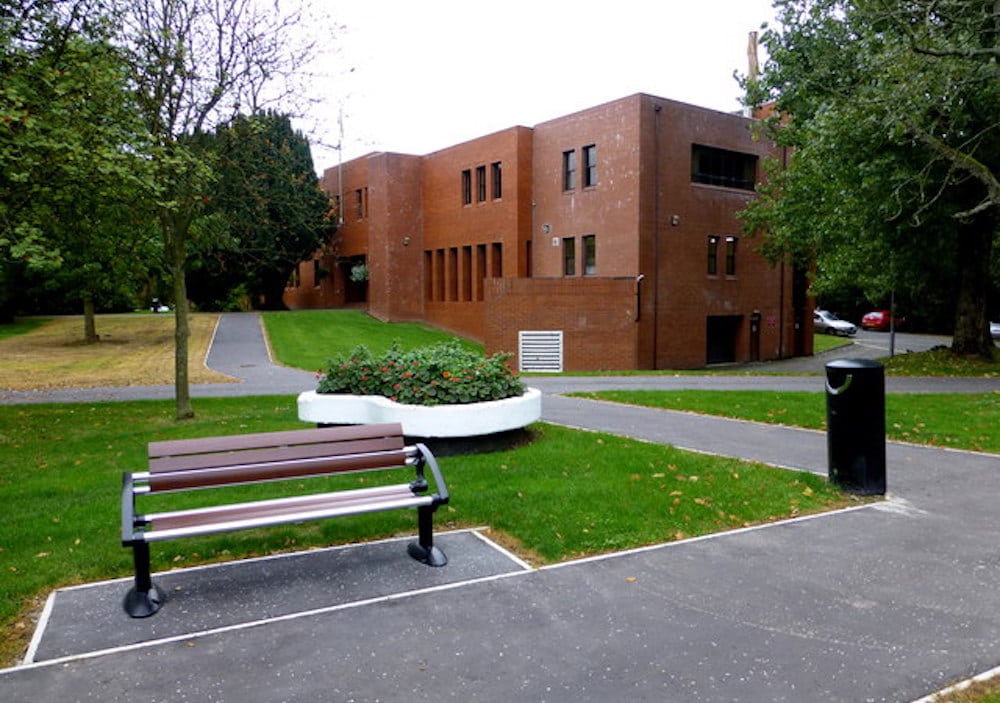
Fermanagh and Omagh District Council has voted in support of a motion on Partition, which caused controversy last month when then Chair, Councillor Chris Smyth refused to allow it on the agenda, leading to fury in the chamber.
Rumours of a no-confidence vote were quickly quashed when the Chair opened the December meeting by announcing he was standing down mid-term and handing over to party colleague Councillor Diana Armstrong.
The swift, unexpected departure of the Chair in the midst of the furore, left Sinn Fein members frustrated and angry.
The motion however was re-submitted and discussed at the January meeting, although Ulster Unionist Councillor Bert Wilson tabled an amendment.
Councillor Stephen McCann began by welcoming the new Chair’s decision to have the motion heard, which noted the centenary of the Government of Ireland Act which the Good Friday Agreement revoked and pointed to the consequences of generational conflict.
Recognising full implementation of the Agreement remains a work in progress, he called for: “A referendum to self-determine our future destiny … There is particular responsibility on the British government to set a date … A stark choice is opening between the narrow, inward-looking vision of Brexit Britain and the open inclusive vision of a new Ireland.”
He told members an Irish sea border has: “Put the prospect of Irish unity centre-stage …In recent days we heard job losses and food shortages are ahead. Our political ties to England has brought us to this against our will. This doesn’t have to be the way. There is an immediate path back into the EU and that is Irish unity …Let’s ensure in 100 years, the partition of Ireland will be a distant memory.”
Seconding, party colleague Councillor Chris McCaffery said: “It’s only right to reflect on the shipwreck that was partition and the 100 years of failure it has meant for our Island … The creation of a sectarian statelet which discriminated against one section of the community, denying voting, housing and employment rights and Irish identity.”
He continued: “I am an Irish republican and make no secret of my desire for Irish unity and an end to partition. I advocate for a democratic end for a union with Britain and the creation of a new Irish Republic where rights are protected and enshrined in legislation … Westminster does not represent the interests of anyone in the six counties.”
Councillor Wilson’s amendment welcomed improved relationships between the UK and Ireland condemned: “All violence including murder prior to and since partition. The vast majority was caused by terrorism.”
He contended many Irish people chose to relocate having “Recognised the great opportunity to be part of the UK as opposed to solely part of the Republic … Ireland would have had a much stronger identity had remained part of the UK … Anybody looking to vote for a united Ireland would be like a turkey voting for Christmas.”
Councillor Wilson called on council to: “Facilitate and support events recognising the centenary of Northern Ireland.”
Democratic Unionist Councillor Keith Elliot described the motion as: “Rambling, with no purpose and no coherent approach …It is little more than a platform speech for those seeking to grab a headline.”
He was followed by Independent councillor Bernice Swift who told members: “Subsequent legislation (since partition) has been geared toward unionist control … the motion wants big ideas, so here’s mine. I seek the immediate withdrawal of British control from the six counties and an end to partition with immediate effect.”
Councillor Eamon Keenan, Independent felt the motion didn’t go far enough and asking for a date for: “A gerrymandered referendum for good little subjects” is insufficient.
He said: “Partition still causes issues. Ireland has the highest COVID rate. Geographically we had an advantage. We could have acted quicker and stopped flights before it took hold. Is this a result of partition by parties north and south implementing different measures? Both were working off neo-liberal policies putting greed before need.”
Councillor Keenan added: “We are plagued with sectarianism, inequality, a growing mental health crisis and now failed drastically during the pandemic. Are we just going to keep asking the British for this gerrymandered poll? And what will it look like? A 32 county socialist republic or the 26 counties subsuming the north and ruled by the dictates of imperialist European Union.”
Ulster Unionist Councillor John McClaughry said 70 per cent of the population ratified the Good Friday Agreement which: “Legitimised Northern Ireland and set out our constitutional future …On emerging from World War 1, new boundaries where drawn up all over Europe. Given the political and violent ongoings throughout Ireland, partition was the only logical solution to the division between those wanting to strike out on their own or remain within the UK.
While acknowledging greater cooperation between the two governments he remarked: “It appears little has changed, with unionists expected to leave or be invisible on the island of Ireland. The constant drive of a one-state island agenda is putting a wedge between all in the community.”
The amendment was voted on first, falling 24-14, with one abstention.
The motion itself was carried with the same voting pattern.



